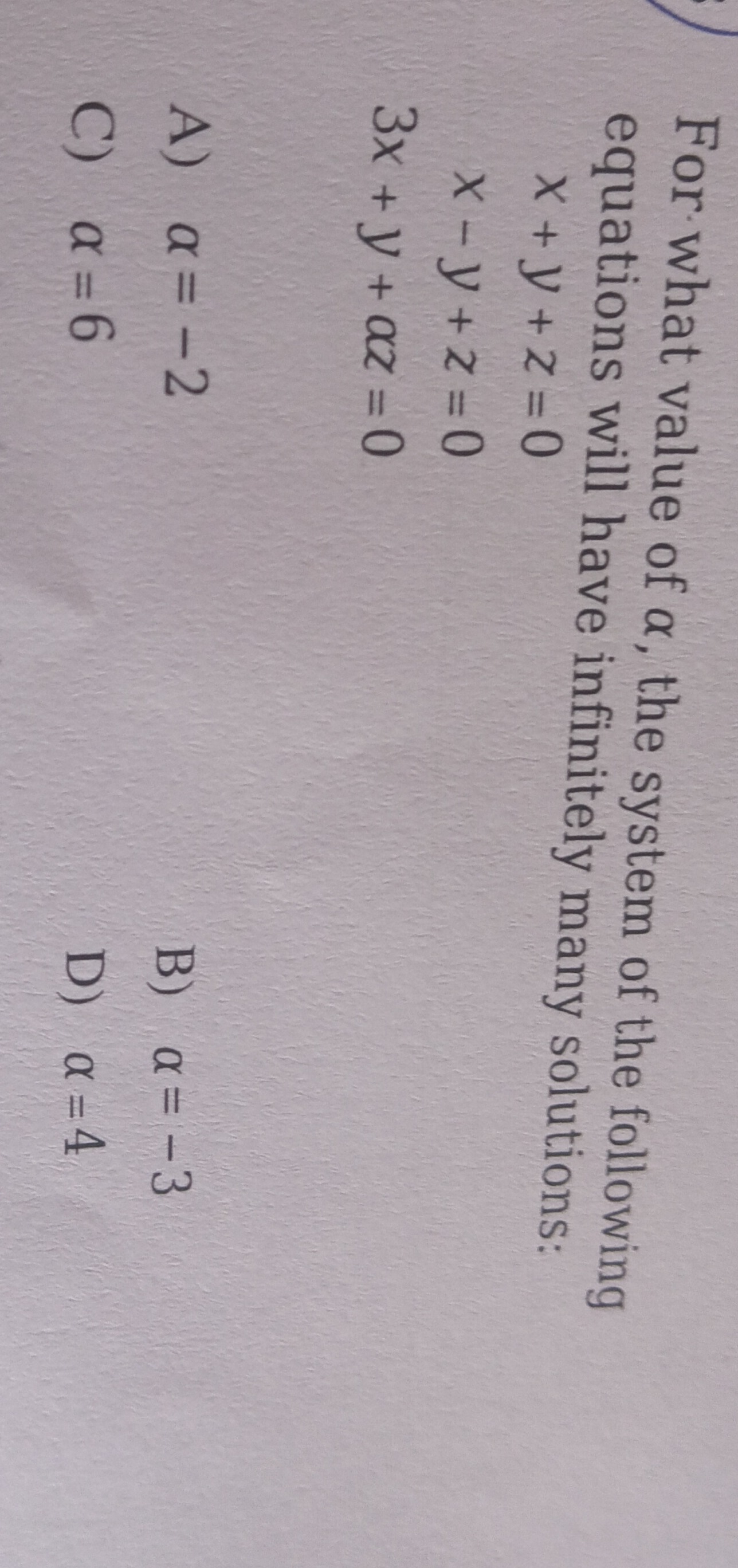Question
Question: For what value of α, the system of the following equations will have infinitely many solutions: x+y...
For what value of α, the system of the following equations will have infinitely many solutions:
x+y+z=0 x-y+z=0 3x + y + αz = 0

α = -2
a = 6
α = -3
a = 4
The system has infinitely many solutions only when α = 3. (None of the provided options is correct.)
Solution
We are given the system:
x+y+zx−y+z3x+y+αz=0(1)=0(2)=0(3)Step 1: Subtract (2) from (1):
(x+y+z)−(x−y+z)=0⇒2y=0⇒y=0Step 2: Substitute y=0 in (1):
x+z=0⇒x=−zStep 3: Substitute x=−z and y=0 in (3):
3(−z)+0+αz=(−3+α)z=0For the system to have infinitely many solutions, this equation must hold for all z (i.e. be an identity). This requires:
α−3=0⇒α=3.However, none of the given options (α=−2,−3,6,4) match α=3.
Minimal Explanation:
Subtract (2) from (1) to get y=0; then x=−z. In (3), substitute to get (α−3)z=0; for infinitely many solutions, α−3=0, so α=3.
Final Answer:
The system has infinitely many solutions only when α=3. (None of the provided options is correct.)
